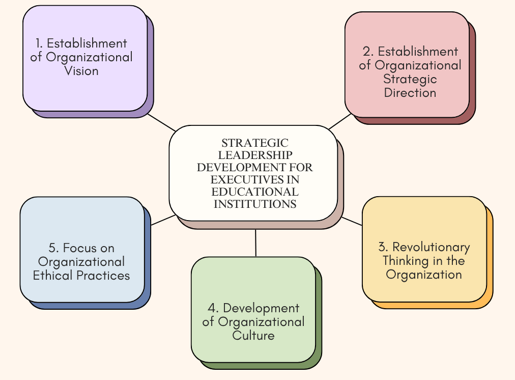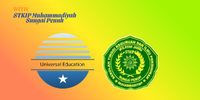Empowering Education and Culture: A Guide to Employee Training and Skill Development Programs
https://doi.org/10.63081/uejtl.v1i3.73
Human Resource Development (HRD), Employee Training, Educational Leadership, Skill Development, Strategic Leadership
Abstract
This study explores the importance of strategic leadership in the development of educational institutions, with a particular focus on human resource development (HRD) in Thailand. HRD is recognized as a cornerstone for national progress, especially in the face of rapid technological changes and globalization. The paper emphasizes that HRD in the education sector must go beyond technical skills to include the development of moral values, ethics, and national character. The research utilizes a traditional literature review methodology to analyze existing sources related to HRD and employee training, offering actionable insights for the design and implementation of effective training programs. The findings underline the need for training initiatives that not only enhance technical competencies but also foster attitudes, behaviors, and interpersonal skills, ensuring that employees are equipped to handle the challenges of a rapidly changing global environment. This holistic approach to HRD is seen as crucial for the long-term sustainability of educational institutions and their ability to adapt to future demands. The study concludes by proposing guidelines for developing strategic leadership skills among school administrators to improve organizational effectiveness and contribute to societal development.
References
Abo-Khalil, A. G. (2024). Integrating sustainability into higher education challenges and opportunities for universities worldwide. Heliyon, 10(9). https://doi.org/10.1016/j.heliyon.2024.e29946
Agarwal, A. (2025). Optimizing employee roles in the era of generative AI: a multi-criteria decision-making analysis of co-creation dynamics. Cogent Social Sciences, 11(1), 2476737. https://doi.org/10.1080/23311886.2025.2476737
Agbedahin, A. V. (2019). Sustainable development, Education for Sustainable Development, and the 2030 Agenda for Sustainable Development: Emergence, efficacy, eminence, and future. Sustainable Development, 27(4), 669–680. https://doi.org/10.1002/sd.1931
Ahmadi, S., & Keshavarzi, A. (2013). A Survey of In-service Training Programs Effectiveness in Teaching Skills Development from the View-point of Students, Teachers and Principals of Guidance Schools in Shiraz. Procedia - Social and Behavioral Sciences, 83, 920–925. https://doi.org/10.1016/j.sbspro.2013.06.172
Aliqkaj, A., & Carvajal, R. (2024). Cognitive Load on Leadership Decision-Making: Conscious and Unconscious responses. Journal of Applied Cognitive Neuroscience, 5(1), e5253-e5253. https://doi.org/10.17981/JACN.5.1.2024.02
Bedwell, W. L., Fiore, S. M., & Salas, E. (2013). Developing the Future Workforce: An Approach for Integrating Interpersonal Skills Into the MBA Classroom. Academy of Management Learning & Education, 13(2), 171–186. https://doi.org/10.5465/amle.2011.0138
Chams, N., & García-Blandón, J. (2019). On the importance of sustainable human resource management for the adoption of sustainable development goals. Resources, Conservation and Recycling, 141, 109–122. https://doi.org/10.1016/j.resconrec.2018.10.006
Cobo, C. (2013). Skills for innovation: envisioning an education that prepares for the changing world. The Curriculum Journal, 24(1), 67–85. https://doi.org/10.1080/09585176.2012.744330
Cohen, K. J., & Cyert, R. M. (1973). Strategy: Formulation, Implementation, and Monitoring. The Journal of Business, 46(3), 349–367. http://www.jstor.org/stable/2351385
Davies, Brent. (2003). Rethinking Strategy and Strategic Leadership in Schools. Educational Management & Administration, 31(3), 295–312. https://doi.org/10.1177/0263211X03031003006
Dess, G. G., & Miller, A. (1993). Strategic Management. McGraw Hill.
Dimmock, C., & Walker, A. (2004). A new approach to strategic leadership: learning‐centredness, connectivity and cultural context in school design. School Leadership & Management, 24(1), 39–56. https://doi.org/10.1080/1363243042000172813
Dubrin, A. J. (2008). Leadership research findings, practice and skills. Dreamtech Press.
Farazmand, A. (2004). Innovation in Strategic Human Resource Management: Building Capacity in the Age of Globalization. Public Organization Review, 4(1), 3–24. https://doi.org/10.1023/B:PORJ.0000015649.54219.b7
Guo, Y., Yang, Y., Bradshaw, M., Wang, C., & Blondeel, M. (2023). Globalization and decarbonization: Changing strategies of global oil and gas companies. Wiley Interdisciplinary Reviews: Climate Change, 14(6), e849. https://doi.org/10.1002/wcc.849
Hannigan, T. P. (1990). Traits, attitudes, and skills that are related to intercultural effectiveness and their implications for cross-cultural training: A review of the literature. International Journal of Intercultural Relations, 14(1), 89–111. https://doi.org/https://doi.org/10.1016/0147-1767(90)90049-3
Jenkins, D., & Khanna, G. (2025). AI‐Enhanced Training, Education, & Development: Exploration and Insights Into Generative AI's Role in Leadership Learning. Journal of Leadership Studies, 18(4), 81-97. https://doi.org/10.1002/jls.70004
Jhonshon, E., Mendoza, C., & Sobirin, M. S. (2024). Strategies of School Principals in Improving Educational Quality An Analysis of Best Practices in American Schools. JMPI: Jurnal Manajemen, Pendidikan dan Pemikiran Islam, 2(2), 112-124. https://doi.org/10.71305/jmpi.v2i2.84
Kramar, R. (2014). Beyond strategic human resource management: is sustainable human resource management the next approach? The International Journal of Human Resource Management, 25(8), 1069–1089. https://doi.org/10.1080/09585192.2013.816863
Lee, S. F., Lo, K. K., Leung, R. F., & Sai On Ko, A. (2000). Strategy formulation framework for vocational education: integrating SWOT analysis, balanced scorecard, QFD methodology and MBNQA education criteria. Managerial Auditing Journal, 15(8), 407–423. https://doi.org/10.1108/02686900010353999
Li, S., & Wang, H. (2018). Traditional Literature Review and Research Synthesis BT - The Palgrave Handbook of Applied Linguistics Research Methodology (A. Phakiti, P. De Costa, L. Plonsky, & S. Starfield (eds.); pp. 123–144). Palgrave Macmillan UK. https://doi.org/10.1057/978-1-137-59900-1_6
Maduforo, A. N., Scott, S., & Scott, D. (2024). Leadership development for contemporary post-secondary academic leaders: Challenges, content and approach. Sage Open, 14(2), 21582440241253647. https://doi.org/10.1177/21582440241253647
Meager, N. (2009). The role of training and skills development in active labour market policies. International Journal of Training and Development, 13(1), 1–18. https://doi.org/10.1111/j.1468-2419.2008.00312.x
Mensah, J. (2019). Sustainable development: Meaning, history, principles, pillars, and implications for human action: Literature review. Cogent Social Sciences, 5(1), 1653531. https://doi.org/10.1080/23311886.2019.1653531
Myers, P. M., Watson, B., & Watson, M. (2008). Effective training programs using instructional systems design and e-learning. Process Safety Progress, 27(2), 131–138. https://doi.org/10.1002/prs.10245
Nurbani, D., Nurdin, D., & Dikdik, A. (2025). Strategic Principal Leadership in Data-Driven and Value-Based School Planning: A Case Study from Indonesian Primary Education. Jurnal Pendidikan Islam, 14(1), 75-89. https://doi.org/10.14421/jpi.2025.141.75-89
Odini, C. (1999). Training and development of skills in a changing information environment. Library Management, 20(2), 100–104. https://doi.org/10.1108/01435129910251566
Omol, E. J. (2024). Organizational digital transformation: from evolution to future trends. Digital Transformation and Society, 3(3), 240-256. https://doi.org/10.1108/JHOM-05-2021-0165
Paul, J., & Barari, M. (2022). Meta-analysis and traditional systematic literature reviews—What, why, when, where, and how? Psychology & Marketing, 39(6), 1099–1115. https://doi.org/https://doi.org/10.1002/mar.21657
Quong, T., & Walker, A. (2010). Seven Principles of Strategic Leadership. International Studies and Education Administration (ISEA), 38(1), 22–35. https://www.researchgate.net/publication/228506732_Seven_principles_of_strategic_leadership
Rajaram, K. (2023). Leading and transforming organizations: Navigating the future. Routledge.
Rozas, L. W., & Klein, W. C. (2010). The Value and Purpose of the Traditional Qualitative Literature Review. Journal of Evidence-Based Social Work, 7(5), 387–399. https://doi.org/10.1080/15433710903344116
Saengsawang, W., & Wongprasit, N. (2021). Factors Affecting Strategic Leadership of Administrators Sahawittayaket Chonburi 1 Under Secondary Educational Service Area Office 18, Thailand. Turkish Journal of Computer and Mathematics Education, 12(8), 2975-2982. https://turcomat.org/index.php/turkbilmat/article/download/4131/3537/7727
Smith, N. R., Knocke, K. E., & Hassmiller Lich, K. (2022). Using decision analysis to support implementation planning in research and practice. Implementation Science Communications, 3(1), 83. https://doi.org/10.1186/s43058-022-00330-1
Snyder, H. (2019). Literature review as a research methodology: An overview and guidelines. Journal of Business Research, 104, 333–339. https://doi.org/https://doi.org/10.1016/j.jbusres.2019.07.039
Stofkova, Z., & Sukalova, V. (2020). Sustainable development of human resources in globalization period. Sustainability (Switzerland), 12(18). https://doi.org/10.3390/su12187681
Talan, A., & Tyagi, R. D. (2020). Education and Human Resource Development for Sustainability. Sustainability, 413–438. https://doi.org/10.1002/9781119434016.ch20
Taqwa, M. R. A. (2025). Ethics in Social Science Research: Current Insights and Practical Strategies: Otto Federico von Feigenblatt and M. Rezaul Islam. 2025. Springer Singapore, 263 pp, ISBN 978-981-97-9880-3 (hbk), ISBN 978-981-97-9883-4 (pbk), ISBN 978-981-97-9881-0 (ePDF). Journal of Academic Ethics, 1-4. https://doi.org/10.1007/s10805-025-09623-1
Tavares, M. C., Azevedo, G., Marques, R. P., & Bastos, M. A. (2023). Challenges of education in the accounting profession in the Era 5.0: A systematic review. Cogent Business & Management, 10(2), 2220198. https://doi.org/10.1080/23311975.2023.2220198
Timm, J. M., & Barth, M. (2021). Making education for sustainable development happen in elementary schools: The role of teachers. Environmental Education Research, 27(1), 50-66. https://doi.org/10.1080/13504622.2020.1813256
Wells, D., & Schminke, M. (2001). Ethical development and human resources training: an integrative framework. Human Resource Management Review, 11(1), 135–158. https://doi.org/10.1016/S1053-4822(00)00044-9
Worapongpat, N., & Sriaroon, S. (2024). Strategic leadership according to the four Brahmavihāra principles in the Chiang Mai Primary Educational Service Area Office 1. Journal of Public and Private Issues, 1(3), 107-117. https://so17.tci-thaijo.org/index.php/jppi/article/view/303

Downloads
Published
How to Cite
Issue
Section
License
Copyright (c) 2025 Napat Panya Panya, Kanyawee Srisuk, Thanakrit Phukhao

This work is licensed under a Creative Commons Attribution-NonCommercial 4.0 International License.







